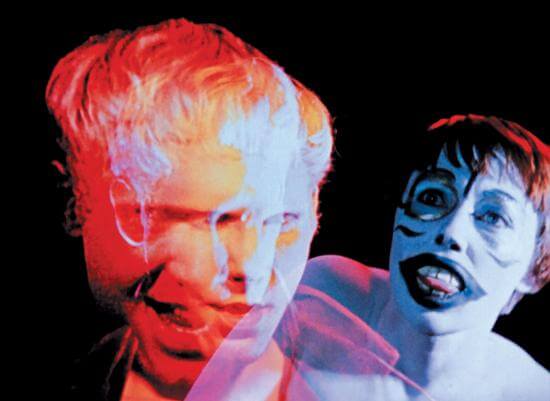By Nathan Duke, The Reel Queens
Kenneth Anger, one of the icons of avant garde cinema, will get his long overdue moment in the spotlight this year following the opening last weekend of an exhibition of the filmmaker’s work at Long Island City’s P.S.1 Contemporary Art Center.
The eight−film retrospective of Anger, whose work has inspired many of the key figures of modern American film, kicked off Sunday at the museum, at 22−25 Jackson Ave. in Long Island City. The California−based director’s work includes themes and images of biker gangs, youth counterculture, car washing, the occult, mythical figures, sailors, eroticism, domesticated housewives and science fiction elements, all of which are coupled with Rolling Stones songs, scores by Manson family members and pop music nuggets.
The exhibition, which runs through Sept. 14, is the first major U.S. survey of the director’s work in a decade, curator Susanne Pheffer said.
“His work is so rich,” she said. “In every image, there is so much detail and so many symbols. His work is frank and astonishing. But so many people don’t have a clue about his work. That’s one of the reasons we are doing this exhibition.”
The exhibit, located on the museum’s second floor, includes five monitors and screens that are showing eight of Anger’s films simultaneously. Its setup will also include red and silver vinyl partitions, as well as wall and floor coverings that are evocative of the atmosphere of the director’s films, she said.
Movies in the survey will include early works “Fireworks” (1947), which depicts a dream sequence of sailors brutally attacking a young man, as well as housewife chronicle “Puce Moment” (1949) and “Eaux d’artifice” (1953).
His cult classic “Inauguration of the Pleasure Dome” (1954), which depicts a mass involving biblical, historical and mythical figures, and “Kustom Kar Kommandos” (1965), in which a man lovingly cleans his car to the beat of pop tune “Dream Lover,” is also screening. Anger’s later works, including 1969’s homoerotic experimental film “Invocation of My Demon Brother,” which features music and some live performance by The Rolling Stones, and 1972’s “Lucifer Rising,” which includes a haunting score by former Manson family member Bobby Beausoleil, is also included in the retrospective.
But the piÈce de rÉsistance could be the influential 1964 short “Scorpio Rising,” a 28−minute film in which fetishized leather−clad bikers frolic and wreak havoc to the tune of a continuous loop of late 1950s and early 1960s pop tunes, such as “My Boyfriend’s Back” and “(Love is Like a) Heat Wave.”
That film, perhaps more so than any other, has influenced several generations of prominent filmmakers, including Martin Scorsese, John Waters, Canada’s Guy Maddin and Gus Van Sant, who was recently nominated for Best Director at this year’s Academy Awards for “Milk.”
None of the films feature dialogue, but are scored with music that often indirectly comments on or complements the images.
“The music is always a commentary,” Pheffer said. “It’s ironic. You could have this household music playing against the image of a naked man. It’s still radical even though it’s been copied a thousand times. And it’s funny because a lot of the popular songs he took without getting the proper rights.”
She said that Anger was also one of the first filmmakers to incorporate found footage into his films.
“He’ll cut another film into his own films,” she said. “Now, everyone does that. You can see it on YouTube. He was far beyond the thinking of his time.”
Anger, now in his 80s, continues to direct experimental films. But P.S.1’s series focuses primarily on his earlier works.
The director, who helped plan the exhibition, will likely drop by the museum throughout the course of its seven−month run, Pheffer said.
Admission to the museum is a suggested $5 donation for adults and $2 for senior citizens and students.
For more information, visit the museum’s Web site at www.ps1.org.
Read film reviews by Nathan Duke at www.criticalconditions.net.

































